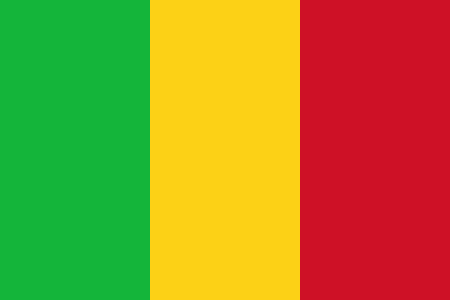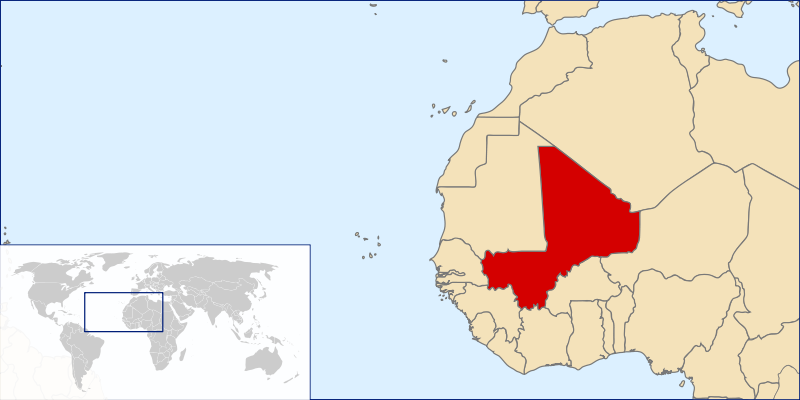 Mali, officially the Republic of Mali (French: République du Mali), is a landlocked country in Western Africa. Mali borders Algeria on the north, Niger on the east, Burkina Faso and the Côte d’Ivoire on the south, Guinea on the south-west, and Senegal and Mauritania on the west.
Mali, officially the Republic of Mali (French: République du Mali), is a landlocked country in Western Africa. Mali borders Algeria on the north, Niger on the east, Burkina Faso and the Côte d’Ivoire on the south, Guinea on the south-west, and Senegal and Mauritania on the west.
Its size is just over 1,240,000 km² with a population more than 14 million. Its capital is Bamako. Mali consists of eight regions and its borders on the north reach deep into the middle of the Sahara, while the country’s southern region, where the majority of inhabitants live, features the Niger and Sénégal rivers.
The country’s economic structure centers around agriculture and fishing. Some of Mali’s natural resources include gold, uranium, and salt. Mali is considered to be one of the poorest nations in the world.
Present-day Mali was once part of three West African empires that controlled trans-Saharan trade: the Ghana Empire, the Mali Empire (from which Mali is named), and the Songhai Empire. In the late 1800s, Mali fell under French control, becoming part of French Sudan. French Sudan (then known as the Sudanese Republic) gained independence in 1959 with Senegal, as the Mali Federation. A year later, following Senegal’s withdrawal from the federation, the Sudanese Republic declared itself the independent Republic of Mali.
After a long period of one-party rule, a 1991 coup led to the writing of a new constitution and the establishment of Mali as a democratic, multi-party state. About half the population live below the international poverty line of US$1.25 a day.

Notes from Wikipedia








